Larry Lee became president and publisher of The Sacramento Observer in 2015, after working for the Sacramento-based family business in various roles since childhood. He returned to the company in 1997 after earning his journalism degree from San Jose State. The company publishes The Sacramento Observer, which has a weekly print edition and a website and has been named best Black newspaper in the country six times by the National Newspaper Publishers Association. Comstock’s spoke with Lee about his company’s role in the Black community and in advocating for a better future.
The Sacramento Observer was founded in 1962 by your father, William Hanford Lee, who passed away last September. Tell me about the background of the company.
My dad was one of three founders. He was joined by John W. Cole and Gino Gladden, (who) passed away pretty young. … It really became a family business pretty early between my dad and my mom (Kathryn Lee). She ran the business side of things and handled the staffing side, and my dad ran the editorial and whole vision side of our business.
I am the youngest of three sons, and my oldest brother, Roddy Lee, passed away in 1994. … I have another brother, Billy Lee Jr., and he is in the entertainment industry, so he currently lives in (Los Angeles). All three boys really played a role in the family business. My grandmother was our receptionist. I had cousins who did layout and design and photography and wrote. I had aunts and uncles who did sales.
It was a family business for sure, along with other people in our community who really helped create an Observer family and, if you ask me, an amazing institution. We had as many as seven publications across the West at one time. So it was very ambitious and one of the most amazing stories in the history of the Black press. (My dad) served as publisher of our paper for 52 years.
How has The Sacramento Observer adapted to changes in the media landscape to both survive as a business and stay relevant among readers?
When I left for college in 1991, there was no internet. When I came back from college in ’97, it was obviously an important part (of) the industry. We have always had leadership that has always wanted to make sure we change. … For instance, we launched our website in 2000, and then, shortly thereafter, we were the first Black newspaper to start sending news to people on their cellphones via text messaging; we started doing text alerts about 2010. We started doing things like email marketing … pretty early.
The challenge not only the Observer faces but other media outlets face (has been) trying to find ways to monetize what we do so we weren’t giving our content away for free. … The key moving forward for us is building a sustainability model that will allow us to not only deliver relevant news and content to our audience, but also to be able to sustain ourselves and continue to grow as a business. We’ve made some challenging decisions over the last five years or so that from the outside surface may look like we are retreating, but we’re actually rebuilding and rebranding ourselves.
We sold our Oak Park office — we resided (there) for 50 years — and decided to remodel a new location on Del Paso Boulevard. The idea basically is to reimagine what our media outlet can be, so I’m really trying to push us to have a 21st-century news-delivery model that encompasses lots of different media vehicles that can reach our community where they are and impact them where they are, and there’s a value to our audience, so they are willing to support us. … We are working on a redesign of our print product, a redesign of our website, and are beginning to really put our arms around what technology gives us that allows us to be innovative and fresh and exciting.
In June, The Sacramento Observer with the Sacramento African American COVID-19 Outreach Coalition hosted a virtual town hall. The Observer has always been active in the community — you don’t just report on it. Can you tell me about the importance of this involvement?
It is different for media outlets to participate in these types of things, unless you look at it from the lens of the Black press. The Black press first originated in 1827, and the credo is no one else will speak for us. It has always had an advocacy role through the pages of the paper. (The Black press) is really the first Black business in this nation; you’re talking about a printed publication prior to the end of slavery, when reading for African Americans was illegal. There is a need to not only just report on the issues, but to be a part of the discussion that helps change the conditions for our community.
There’s a lot of discussion right now in mainstream media about covering the protests and how can reporters of color cover the protest without bias? You can ask that same question of non-Black reporters: Can they cover the protests without bias? People carry their experiences with them. The challenge is how do you remove those experiences or use those experiences to help enlighten a conversation or raise awareness about issues and develop a healthy dialogue? So many times we are so concerned with trying to not bring up these issues that we do ourselves a disservice.
The Observer has always wanted to make sure and say, “Look, you know, when African Americans walk in a room, there’s a physical component to us that is recognizable, and trying to ignore that is really doing a disservice to the conversation.” It’s very similar to the discussion about (repealing) Proposition 209 (the 1996 ballot measure that ended affirmative action in California public institutions).
Can you live in a colorblind society? Well, no. There’s nothing wrong with recognizing that people are different. Our involvement in issues, like the COVID-19 discussion, the protests, we have been not only documenting these issues but raising awareness and trying to advocate for the addressing of disparities in our communities.
Mainstream media is having to face a reckoning with the lack of diversity within its newsrooms and the way its coverage feeds into systemic racism and fails to fully represent American society. How can these media outlets do better?
It’s a lot of things. Let’s first take a look internally. (They) have to do a better job looking at their own staff. It’s been an ongoing discussion about how the media industry does not reflect the diversity of communities they serve. … These media outlets need to make sure that they have the people in place, first of all. The idea of saying you can’t find talent, someone’s not the right cultural fit for the newsroom, those kinds of things need to be addressed honestly and recognize there are systemic, historical barriers to not only identifying but then cultivating talent.
Every reporter that comes in through the doors is going to be green. But it depends on how you cultivate that talent and develop editors and management that can help shed light and educate future generations of reporters and photographers. You’ve got to do a better job of that. … Reaching out to youth groups to develop a pipeline for next-generation staffers is critical.
The other part is really checking the coverage and saying, “Does this reflect how people are feeling?” I think there are some thoughtful media outlets out there, but there is a level of uniqueness and sensitivity and nuances that we have as a Black newspaper that others don’t have when it comes to covering our community. … Having those voices in the newsroom only makes your coverage better.
What are some of the major local, state or national issues your readers want covered nowadays?
Right now, there is a feeling and understanding of changing the systems. There’s a complete buy-in from our community in trying to say, “We’re tired of the systematic oppression that is impacting our communities, so we’ve got to change that.” Business and economic development, health care, technology, social justice, those are some of the areas that are extremely critical right now. Obviously, politics as well.
There’s also been an ongoing discussion about participating in the census to make sure we’ve got the proper resources in our community. Homelessness is another critical issue. … There’s a bill right now that is trying to change historic landmark legislation in California, Proposition 209. … But it’s not all heavy. There’s such a beauty in our community when you start talking about our creativity, when you start talking about artists and artist development (and) authors. Of course, our faith community is critical.
The Observer published a long, two-part interview with Sacramento Police Chief Daniel Hahn in June. What did you take away from that piece as both a publisher of a media outlet and as a Black resident of Sacramento?
We are very lucky to have Chief Hahn in leadership with the Sacramento Police Department. He is a thoughtful leader who is trying to create change in our community through his role as police chief. The challenge for Chief Hahn, and for our community, is he is just one person in a system that has failed our community for a long time. We are taxpaying citizens, and we deserve to have peace officers that are just that: peace officers.
(Hanh) is working his tail off. … He’s being innovative. (He’s talked) about using technology and drones to try (to) remove the potential for a dangerous confrontation. … The challenge is Sac PD is only one of (several) law enforcement agencies in the region. Our community is overpoliced. … There are some parts in our community … you could have four different law enforcement agencies overlap in their jurisdictions. If you’re in Oak Park, you can get pulled over by Sac PD, by (the Sacramento County) Sheriff, by UC Davis and (University of the Pacific police).
We have to change this system, because it’s not working for everybody. If it’s not working for the least of us, it’s not working for us. That’s the challenge we have. I would ask Sheriff Scott Jones to step up. I would ask the UC Davis police chief and Rancho Cordova police chief and all of these other police chiefs to step up. … I’m extremely proud of (Hahn). He’s a wonderful representation of what community policing can look like.
Anything else you would like to talk about?
I would like people to really anticipate what this next chapter in our evolution looks like when we unveil the new building, the new brand, the new products. … Newspapers in this day and age are really struggling. You look at the Sacramento News & Review and how they had to suspend (weekly print) publishing. …
However, I have such an optimistic view about this moment in time for us. It is a sea change, it is an opportunity to really be part of a conversation and build on the foundation we’ve had for a long time. If you’re an entrepreneur during this time, there’s some nervousness, of course, but it’s also very exciting to say, “What could happen if we did this?” There are also conversations happening in this region about media collaboration. … How can we collaborate and help lift each other up?
–
Stay up to date on business in the Capital Region: Subscribe to the Comstock’s newsletter today!
Recommended For You

Going With the Flows
McGeorge School of Law professor Jennifer Harder on water issues, laws and uses
Professor Jennifer Harder is the co-director of the Water & Environmental Law program at McGeorge School of Law in Sacramento. Comstock’s spoke with Harder about water issues affecting the Capital Region and California.
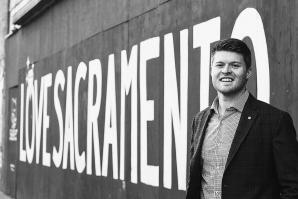
A Kick-Start for Startups
Carlsen Center for Innovation & Entrepreneurship Executive Director Cameron Law on entrepreneurship and its role in the recovery
Comstock’s spoke with Law about the ways both the center and the local entrepreneurial scene are evolving in the face of a crisis.
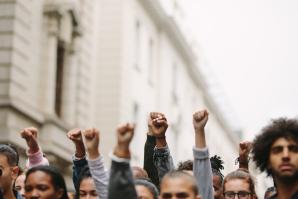
Up to the Task
Nehemiah Emerging Leaders Program founder Scott Syphax on how emerging leaders can help achieve social justice
In June, the Sacramento-based Nehemiah Emerging Leaders Program addressed the recent deaths of George Floyd, Ahmaud Arbery, Breonna Taylor, Stephon Clark and other Black people at the hands of the police in an open letter to the greater Sacramento community.
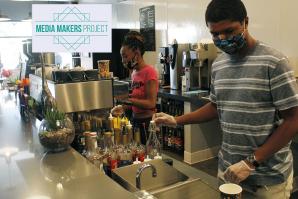
Savvy Business Moves
Black-owned businesses and their customers rally to stay afloat amid the pandemic and protests calling for social change
Many people have been actively promoting the patronization of Black-owned businesses as an act of social justice capitalism.



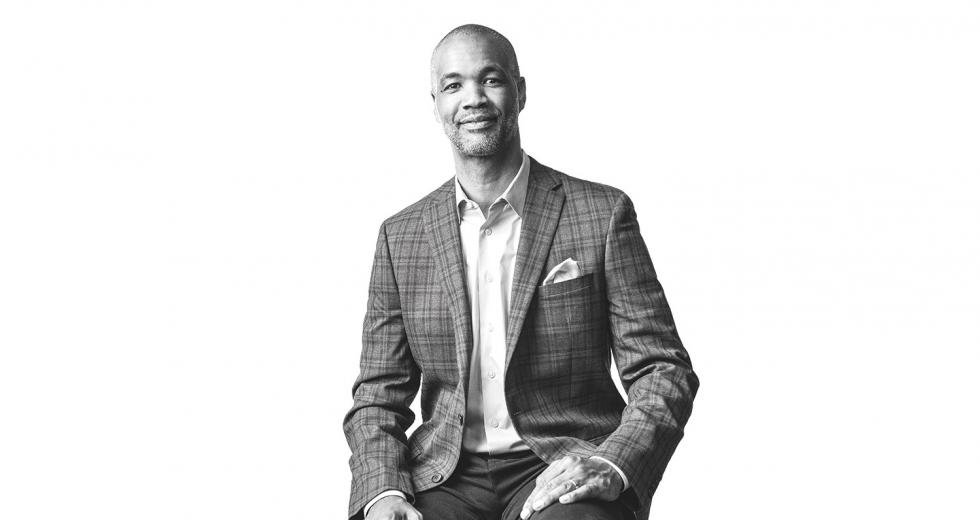
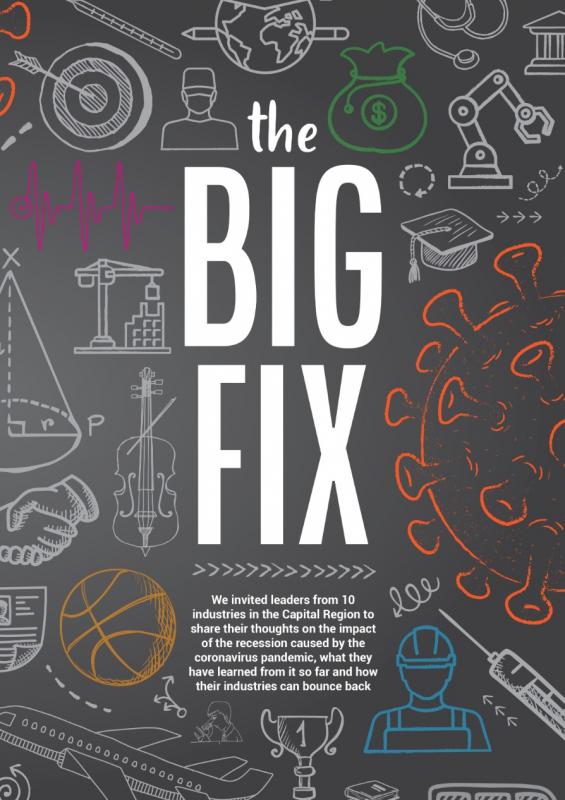
Comments
Great time to profile Larry and the role the Observer has played in our community, and especially how he uses his background in online and social media to update delivery of content. Key voice, glad to hear of his plans going forward.